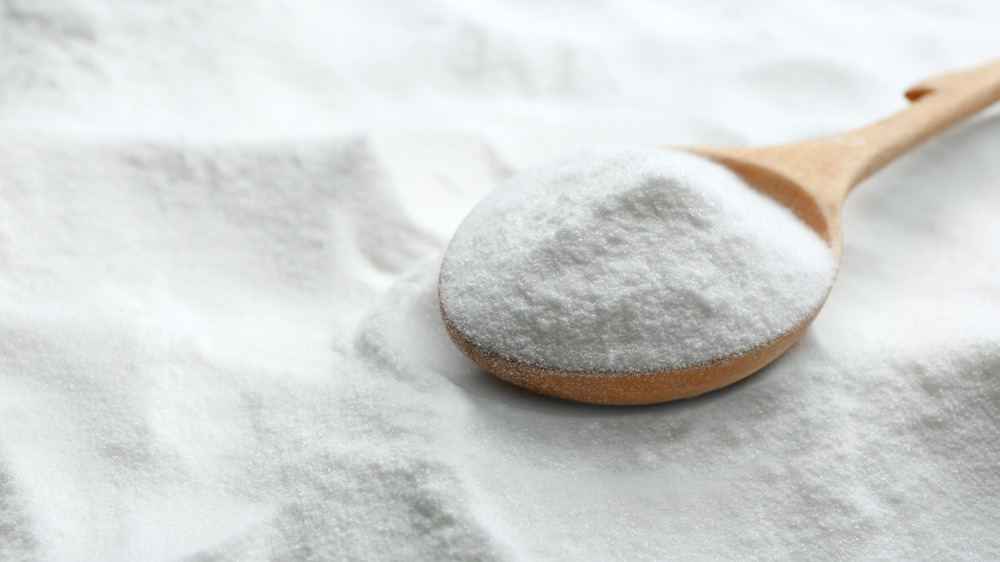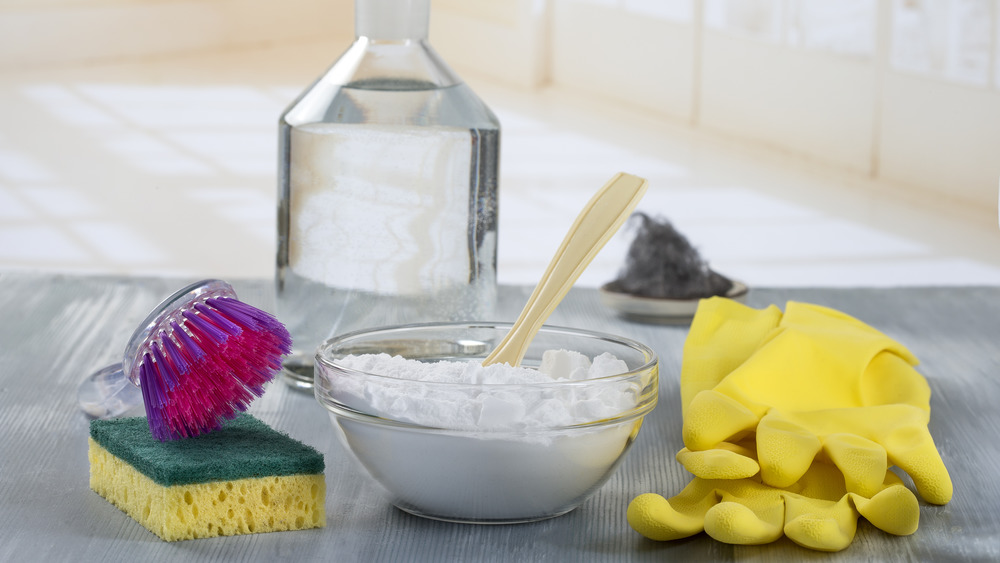Why You Should Never Use Baking Soda On Your Skin
There are so many things to love about that little orange box sitting in your pantry. From freshening breath to settling indigestion, soothing skin rashes to whitening teeth, being a stellar cleaner and more, there seems to be nothing that baking soda can't do. So it might come as a surprise that there's one place experts generally advise against using it — and that's on your skin.
It all comes back to those two little letters we learned in high school chemistry: pH. Remember the pH scale, which runs from one to 14? The center point — seven — is neutral, with anything below seven being acidic, and anything over it being alkaline. Baking soda, aka sodium bicarbonate, at nine on the pH scale, is alkaline. Your skin, on the other hand, leans acidic, with a pH of between four and six. And it wants to stay that way.
Maintaining the skin's "acid mantle" — its natural barrier composed of oils and sweat, which protects the skin's microbiome and moisture – is an important part of skin health (via Healthline).
Baking soda has many uses around the house
Onyeka Obioha, M.D., a dermatologist in Los Angeles, says "An acidic pH is optimal for proper cell turnover, hydration, and skin barrier function. A breakdown in this barrier leaves skin susceptible to inflammatory conditions, dehydration, and accelerated aging" (via Good Housekeeping).
Using baking soda once in a while as a spot treatment for acne or as an exfoliant probably won't do any harm. But frequent use can actually change the pH of your skin, disturbing the protective acidity and normal skin bacterias, and leaving the skin prone to dehydration, irritation, and infection.
Joshua Zeichner, M.D., a New York City-based dermatologist, tells Well + Good, "I personally recommend avoiding baking soda on the skin because it has an alkaline pH and can disrupt the outer skin layer, which leads to irritation and inflammation." So, go ahead and use it to make your house sparkle and your cakes fluffy — just leave it off your skin.


